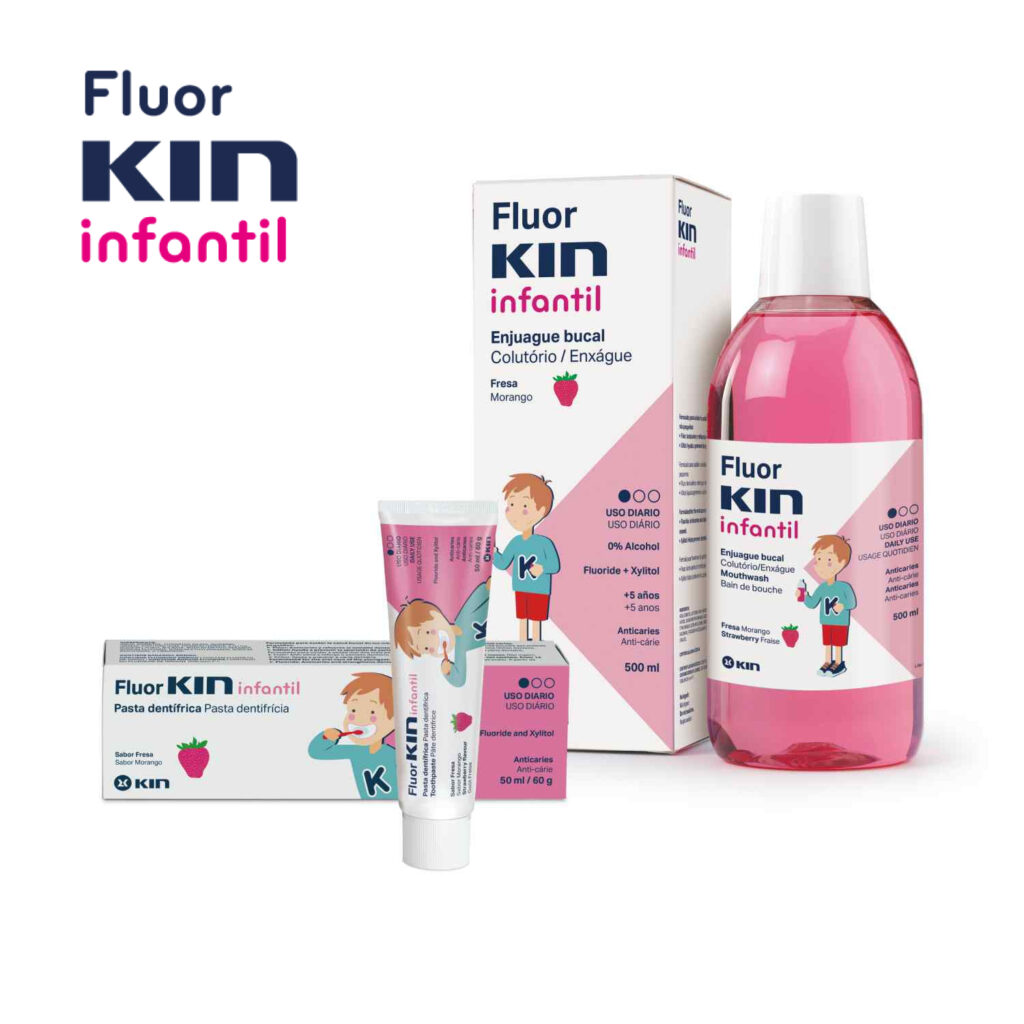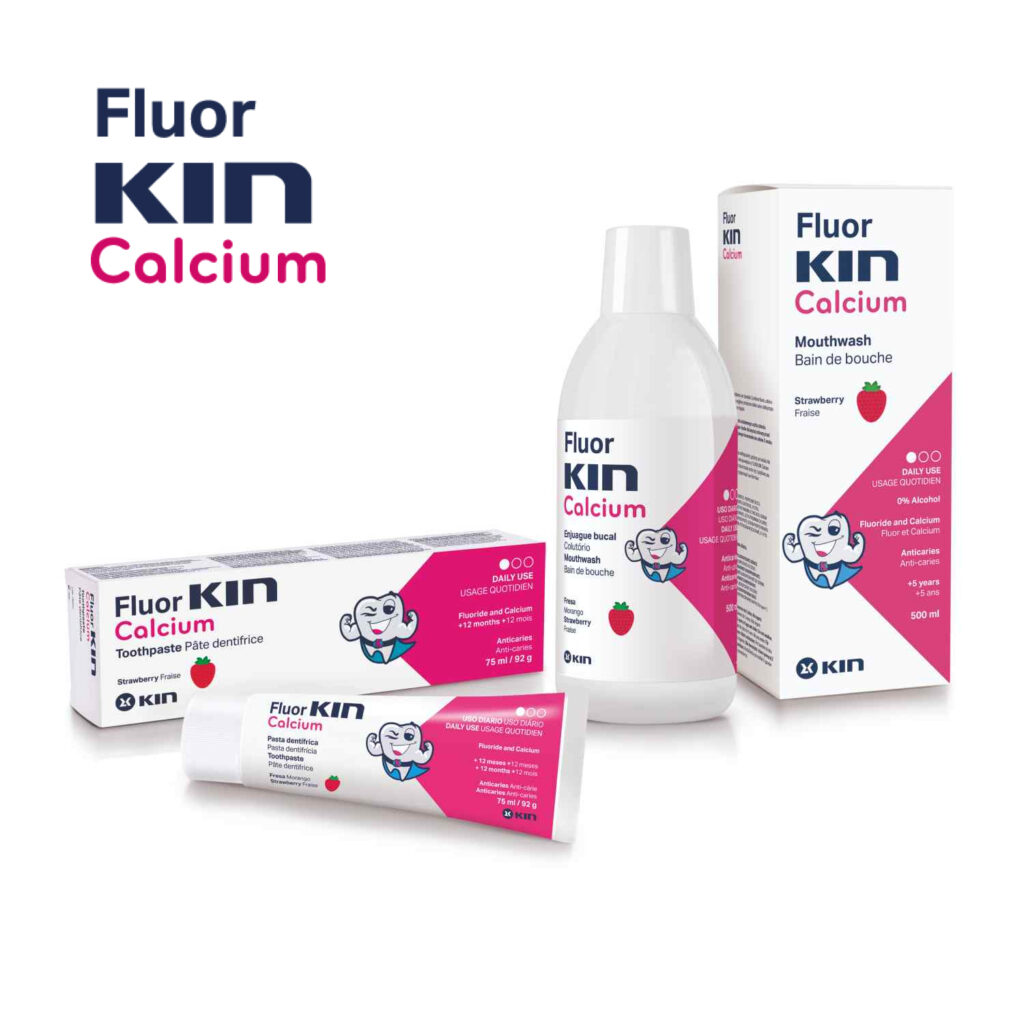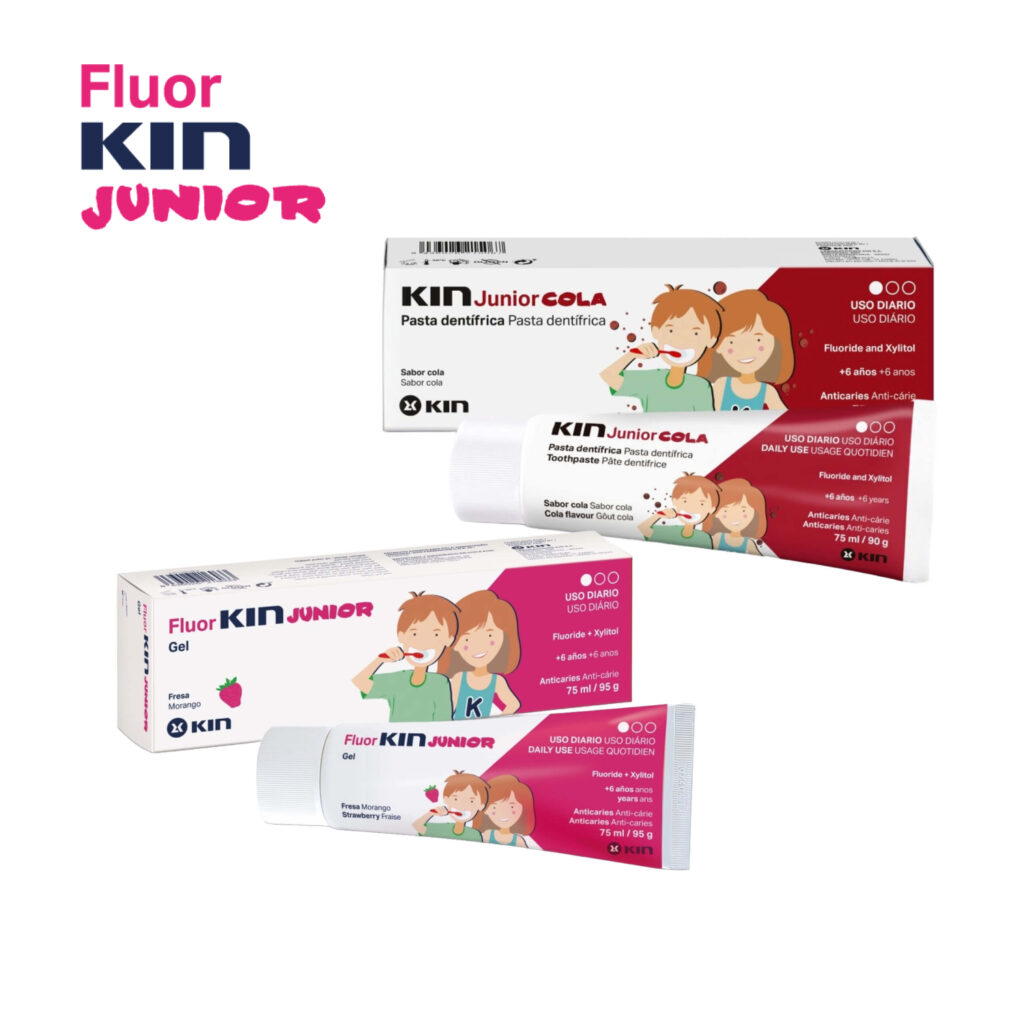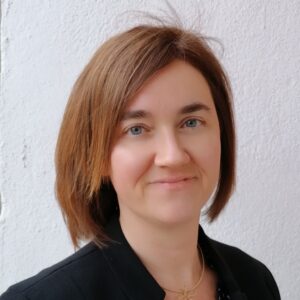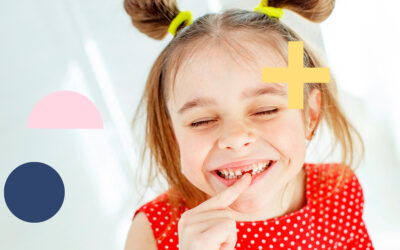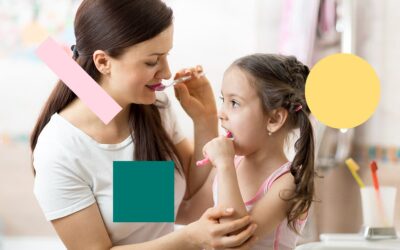The care of baby teeth has a direct influence on the health of permanent teeth. Although they have a temporary function, it is very important to clean your baby's teeth properly, it is very important to clean the baby's teeth properlyIt is very important to clean the baby's teeth properly, avoiding the formation of cavities and other oral problems in children.
From birth and during the first years of a baby's life, parents are responsible for children's oral hygiene. But when should you start cleaning the first teeth? How should you clean your baby's teeth?
We solve these and many other frequent doubts about the care of baby teeth in children. in children.
Can caries appear in baby teeth?
Of course they are. Baby teeth are not exempt from the harmful effects of dental plaque. plaque.
In the baby's mouth, just as in adults, there is a large number of bacteria that feed on the leftover milk. bacteria that feed on leftover milk and other food accumulated after each feeding. and other food accumulated after each feeding.
Even before the eruption of the first milk teeth, dental plaque can form on the baby's gums and gradually damage the enamel of the newly erupted teeth. This type of caries is known as rampant caries or baby bottle caries.
Caries in primary teeth is very aggressive because the enamel of primary teeth is not as strong as that of permanent teeth. the enamel of the primary teeth is not as resistant as that of the permanent teeth.. The infection can pass more quickly to the pulp of the teeth, affecting the health of the permanent teeth that are forming, and also the general health of the baby.
At what age should baby teeth be cleaned?
A baby's oral hygiene should begin even before the first baby tooth erupts. before the eruption of the first baby tooth.. This is adapted at all times to the age and needs of each child, choosing the most appropriate accessories and techniques.
Before teething, simply keep your baby's gum and tongue clean by keep the baby's gums and tongue clean by wiping with a damp gauze pad and soft. This will remove any milk residue that remains after each feeding.
Once the primary teeth have erupted, at around 6 months of age, brushing is included in the daily oral hygiene routine. For babies, there are special special brushes with small, rounded brush heads and very soft bristleswith very soft bristles so as not to damage their delicate gums.
In addition to the oral hygiene of the little ones, the specialists advise parents to to carry out the corresponding dental checkups in children.When should a baby visit the dentist for the first time? Right after the eruption of the first milk tooth, between 6 and 12 months of age.
You can learn more about the first dental check-up in young children through the KIN blog.
How to clean them step by step
When they are still very young, children cannot brush their teeth by themselves. Parents are responsible for cleaning their baby's teeth by following a few simple steps:
- Start by moistening the children's toothbrush with water.
- Gently swipe over the gums in a circular motion to remove food debris.
- It mainly affects the teeth to prevent the formation of biofilm.
- It covers both the upper and lower dental arches, cleaning the front and back of the teeth until the entire mouth is cleaned.
- Do not forget to clean the tongue and the inside of the cheeks as well.
As long as the baby is young, it is not necessary to use any type of toothpaste. As children get older, there are special children's fluoride toothpastes special fluoridated children's toothpastes for the for the youngest little ones of the house.
When to use children's toothpaste?
Once the teeth begin to erupt, for the care of the baby's oral hygiene it is recommended the use of fluoride toothpaste in an amount corresponding to the size of a grain of rice. use of fluoride toothpaste in an amount corresponding to the size of a grain of rice is recommended.. The baby's teeth should be brushed once in the morning and once at night, unless your dentist tells you that your baby's teeth should be brushed once in the morning and once at night.é other Indications after the first check-up.
The most recommended toothpaste for the care of baby and infant teeth is the one with a content of fluoride of 1000 ppm F- for a complete protection against caries and a correct remineralization and reinforcement of the dental enamel.
FluorKIN Infant toothpaste is formulated with the ideal dose of fluoride for children from the eruption of the first tooth, up to 6 years of age. It includes xylitol, to ensure the development of healthier milk teeth, protecting against caries and remineralizing tooth enamel.
The FluorKIN Calcium line has the same content in fluoride, plus calcium glycerophosphate for extra protection of children's teeth. For daily use from the eruption of the first teeth, the contribution of calcium and phosphorus is essential for the formation of teeth in this stage of development. Take care of your little ones' smiles with our line of children's products.
Discover our children's oral care products

For older children between 6 and 12 years of age, FluorKIN Junior toothpaste and gel toothpaste offer a higher fluoride content of 1450 ppm F- for extra reinforcement of the teeth. Around this age, children already know how to brush their teeth by themselves, and accidental swallowing of toothpaste during brushing no longer occurs.
In addition to the toothpaste, both the FluorKIN Calcium and FluorKIN Infantil lines have their own children's Mouthwash . Recommended for children from 5 years of age, the mouthwash is undoubtedly the best tool to complete oral hygiene by preventing dental plaque and the formation of caries in baby teeth.
How to protect the first teeth?
Babies' teeth are protected in exactly the same way as those of children and adults: through proper brushing. In addition to daily oral hygiene, there are other tips from pediatric dentists to help parents take proper care of their baby's first teeth:
- Prevents the baby from the baby from falling asleep with the bottle in the mouth.. Milk residue in contact with the gums or teeth increases the risk of tooth decay.
- Once the first teeth have erupted, begin to space out nighttime feedings. spacing out nighttime feedings so that the baby feeds preferably during the day. During sleeping hours at night, oral bacteria are more active, feeding on the milk residue left in the baby's mouth.
- Do not dip the pacifier in sugar or any sweet food or drink. Avoid as much as possibles as much as possible to offer sugary foods, milkshakes or fruit juices.
- Brush your baby's teeth at least twice a day, after breakfast and before going to bed at night.after breakfast and before going to bed at night. In this way you ensure the elimination of most of the bacteria that grow and develop more rapidly during the night.
If you have any doubts, consult with your dentist how to care for and clean your baby's teeth following the proper guidelines.. Remember that the oral health of any person begins in early childhood.

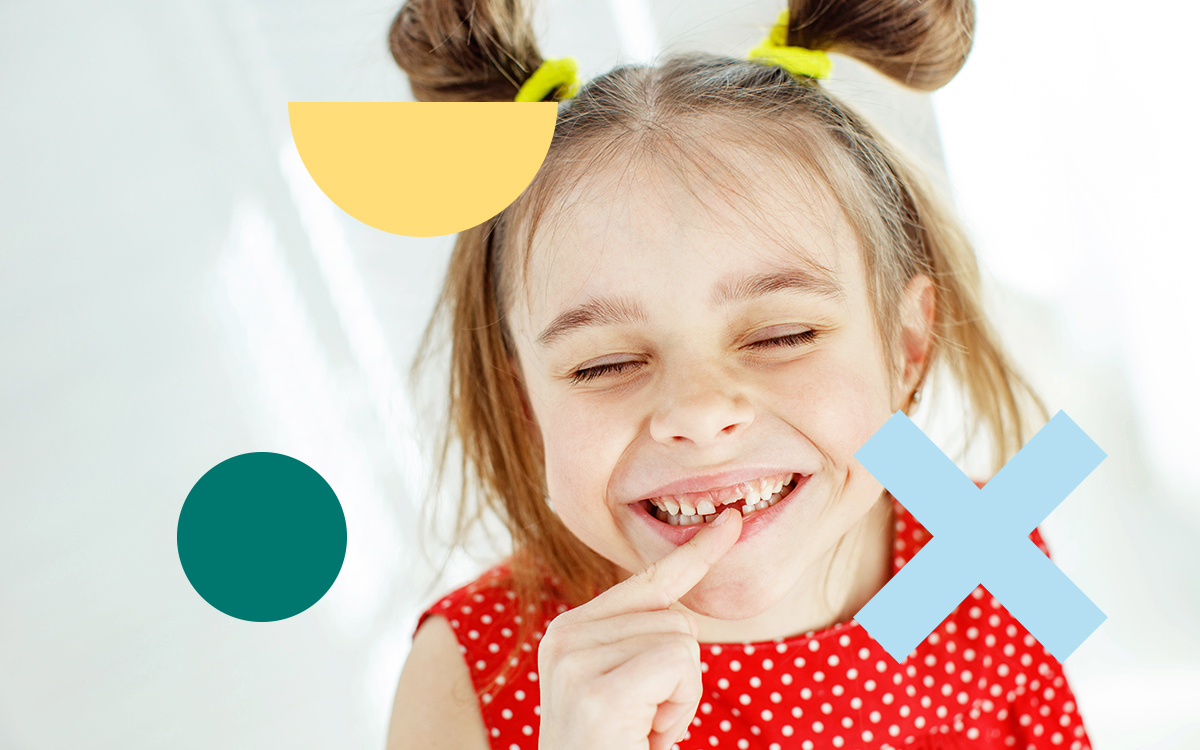
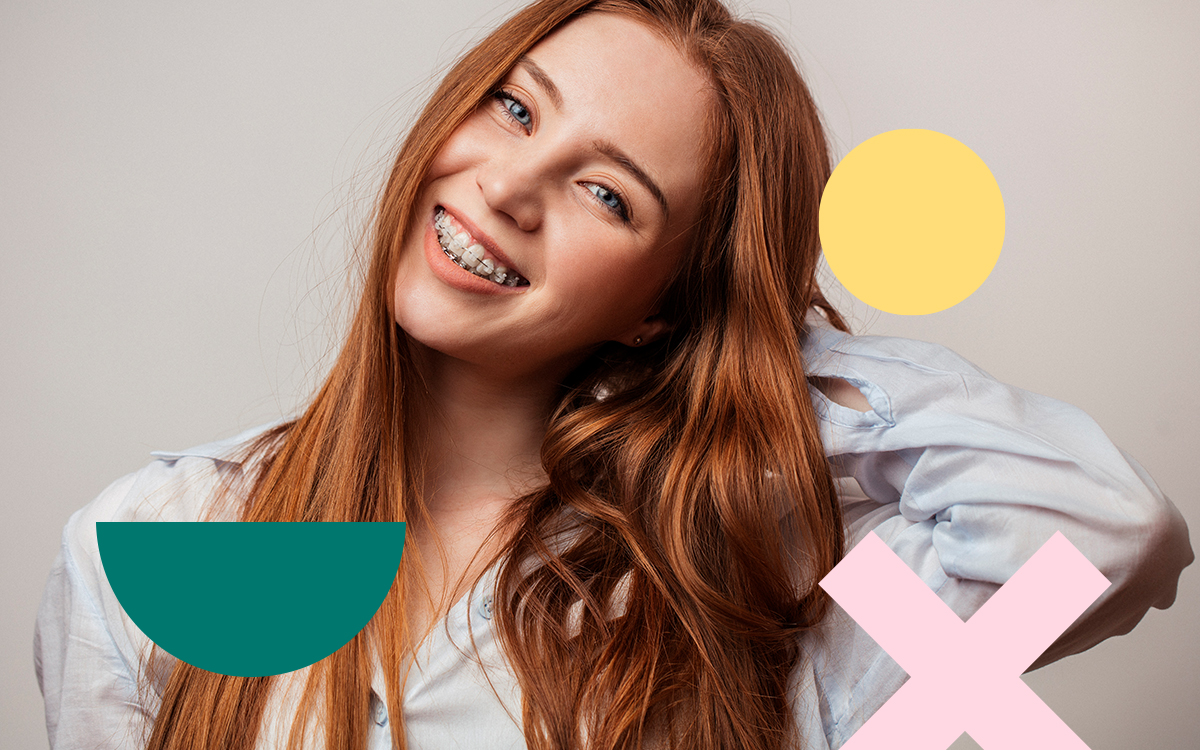 How to relieve pain with newly placed braces?
How to relieve pain with newly placed braces? How to keep your breath fresh?
How to keep your breath fresh?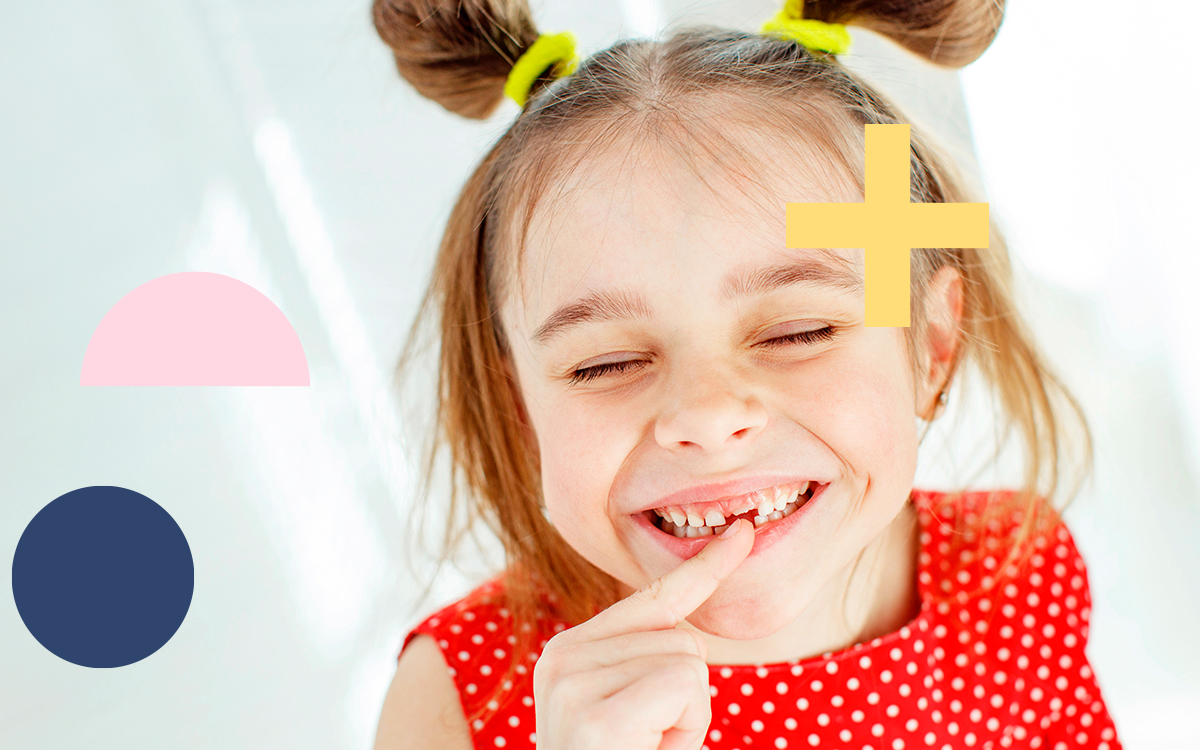 10 Tips to take care of the oral health of the little ones
10 Tips to take care of the oral health of the little ones